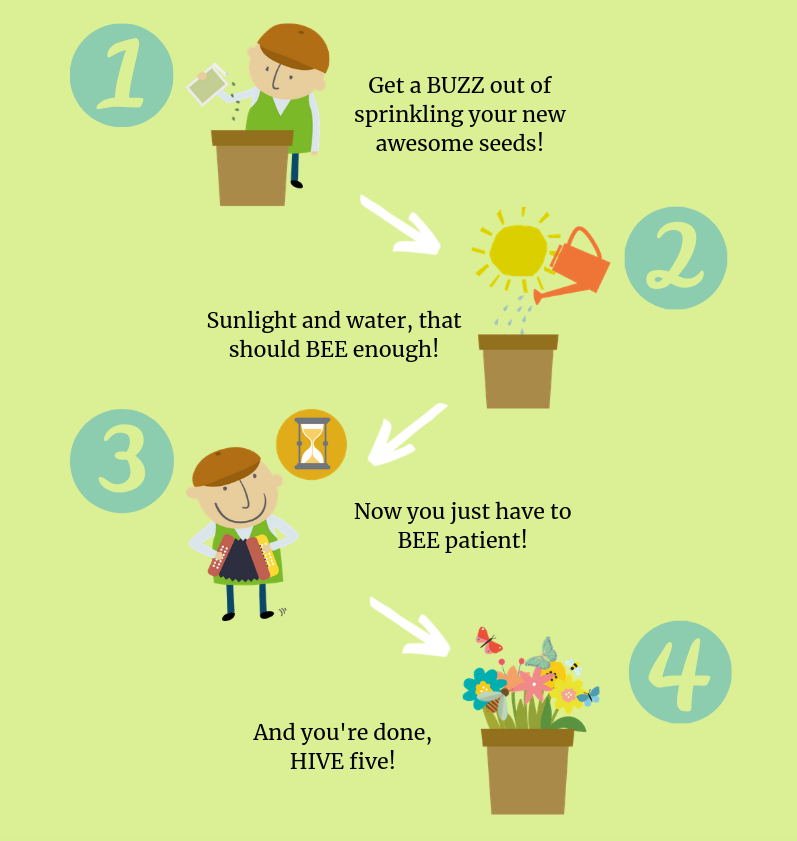To Bee or not to Bee…
Posted in News on 23 April 2019

A third of the food we eat comes as the result of pollinators!
Bees need our help: they’re critical pollinators — alongside butterflies and hummingbirds.


In our next 3000 orders we’ll be sending out Butterfly and Bee mixture Seeds!
By planting a bee garden, you can help the bees by adding a flower-rich habitat outside your home.



Place your order now to make sure you get your awesome seeds
and enjoy the BUZZ of growing a Bee-friendly garden!

Can we live without bees?
A world without honey bees would mean a world without fruits, seeds and vegetables!
Like we said before, a third of the worlds crops depend on pollinators, like bees, butterflies, hummingbirds and beetles.
It’s not only food and crops, honey and wax are two other important products that come from bees.
These awesome little flying insects pollinate up to 70 types of crop.
Honey bees as a species are not in danger of extinction, but their ability to support the industry of commercial pollination and a large portion of our food supply, is in serious danger.
There are many reasons all those bees are disappearing:
• Pesticides and insecticides in crops.
• Pollution of rivers and water sources.
• Pollution of the soil which contaminates plants.
• Extreme climates.
• Reduction of wild meadows.
• Competition from invasive species.
• And many more…
Unfortunately the list is way too long, and bees are becoming weaker and die off faster. Last year 40% of bee colonies died. This is threatening farmers who depend on these insects for their pollination services.You can help a little by:
1. Plant your garden with native and bee friendly plants!
2. Do not use pesticides, fungicides or herbicides on plants, or in your garden.
3. Buy local and raw honey from your local beekeepers.
4. Another important step is providing pollinators a source of water in your garden.
5. Educate yourself and your loved ones about bees, as they’re not dangerous and won’t attack humans.
Read read more about what you can do to help the bees!
What is pollination?
Pollination is a vital process of nature that isn’t very well known.
It is extremely important in the food growing processes, and without it, we would be in lots of trouble. For the fruit seeds to develop, pollen has to be transferred between two flowers of the same species.
When a bee collects nectar and pollen from the flower of a plant, some pollen from the stamens – the male reproductive organ of the flower – sticks to the hairs of her body. And when this little creature visits the next flower, some of this pollen is scattered off onto the stigma, the female reproductive organ of the flower. The fertilised cells grow into seeds, which are then spread in the many fruits and vegetables that we eat!
At Doxdirect we’re sending Butterfly and Bee Mixture Seeds on 3000 orders to help out a little…
We know we’re far from saving all the bees, but we want to create some awareness. We need to take care of our beautiful world, and every little counts.
Share the love and spread the word!
The Doxtors